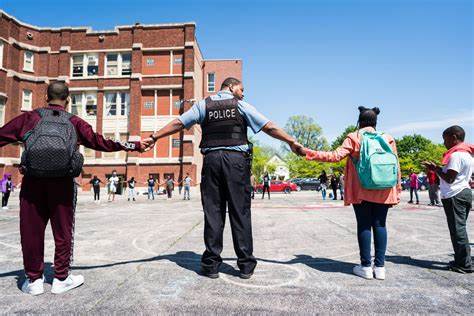Child Protective Services (CPS) plays a pivotal role in safeguarding the welfare of children in the USA. Tasked with investigating and addressing concerns related to abuse or neglect, CPS interventions aim to ensure the well-being of children. This introductory glimpse sets the stage for a comprehensive exploration of ignoring CPS and its far-reaching consequences.
What Happens If You Ignore CPS?
1. Legal Ramifications:
Ignoring CPS can lead to serious legal consequences for parents or guardians. CPS plays a crucial role in ensuring the welfare of children by investigating allegations of abuse or neglect. If parents choose to ignore or resist CPS interventions, legal actions may be taken against them. This could result in the removal of the child from the home, termination of parental rights, or even criminal charges.
When parents resist cooperation with CPS, it can escalate the situation, making it more likely for legal intervention. Court proceedings may involve hearings, testimonies, and assessments, requiring significant time and resources. This process can strain the family emotionally and financially, exacerbating the challenges they face.
Furthermore, legal consequences can have lasting impacts on the family’s dynamics. The stigma associated with CPS involvement may affect parental employment, housing, and community relationships. This creates a cycle of difficulties that can be challenging to break, impacting not only the parents but also the child’s future prospects.
2. Child Well-being:
Ignoring CPS can significantly jeopardize the well-being of the child involved. CPS investigations aim to assess and address concerns regarding a child’s safety, health, and overall development. By resisting or avoiding these interventions, parents may inadvertently expose their child to ongoing risks.
A deep dive into the consequences on child well-being reveals that neglecting CPS recommendations may perpetuate unsafe living conditions, hinder access to necessary services, and delay essential medical or psychological interventions. The child’s emotional and physical health could be compromised, leading to long-term consequences.
Additionally, ignoring CPS may result in the child’s removal from the home. While this is done with the child’s best interests in mind, the separation can be traumatic. Long-term effects of out-of-home placement include disruptions in education, emotional distress, and challenges in forming stable relationships.
3. Impact on Family Dynamics:
Ignoring CPS can strain family dynamics and relationships. When faced with CPS intervention, families are often in crisis, and addressing the concerns raised is crucial for maintaining stability. Choosing to ignore or resist CPS recommendations can exacerbate tensions within the family.
Family members may experience increased stress, anxiety, and mistrust. Siblings may be separated, and parents may struggle with feelings of guilt or resentment. The lack of cooperation with CPS can lead to a breakdown in communication and support networks, making it difficult for the family to navigate the challenges they face.
Furthermore, ignoring CPS can perpetuate unhealthy patterns within the family, hindering the development of effective coping mechanisms. It can create a cycle of dysfunction that persists even after the immediate crisis has passed. Addressing CPS concerns collaboratively with the aim of family preservation allows for the possibility of positive change and growth.
4. Educational Disruptions:
Ignoring CPS can lead to significant disruptions in a child’s education. An in-depth analysis reveals that when families resist or fail to cooperate with CPS investigations, it may result in the child’s removal from the home, placement in foster care, or changes in living situations. These disruptions can have a detrimental impact on the child’s academic progress and overall educational experience.
Educational continuity is crucial for a child’s development, and interruptions caused by CPS involvement can lead to gaps in learning, emotional distress, and challenges in adapting to new school environments. The child may struggle to maintain stable relationships with teachers and peers, hindering their social and emotional growth.
Additionally, frequent changes in schools can result in inconsistencies in educational support and specialized services that a child may require. This can have long-term consequences on their academic achievements and future opportunities. Addressing CPS concerns promptly and collaboratively can help mitigate these disruptions and prioritize the child’s educational well-being.
5. Long-Term Psychological Impact on Children:
Ignoring CPS and neglecting the needs of a child can have lasting psychological effects. A thorough examination of this consequence reveals that children who experience abuse or neglect and do not receive timely intervention may develop long-term mental health issues.
Ignoring CPS recommendations denies children access to necessary therapeutic interventions, counseling, and support services. This lack of early intervention can contribute to the development of anxiety disorders, depression, post-traumatic stress disorder (PTSD), and other psychological challenges.
Furthermore, when CPS concerns are not adequately addressed, children may internalize feelings of abandonment, worthlessness, or insecurity. This can impact their self-esteem and ability to form healthy relationships in the future. The long-term psychological consequences of neglecting the emotional and mental well-being of a child are significant and highlight the urgency of addressing CPS concerns to ensure a child’s overall health and resilience.
6. Interference with Parental Guidance and Support:
Ignoring CPS can interfere with the crucial role of parental guidance and support. A detailed examination reveals that CPS interventions are often an opportunity for parents to receive guidance, resources, and support to address the underlying issues contributing to concerns about the child’s well-being.
Ignoring CPS recommendations denies parents the chance to work collaboratively with professionals who can provide assistance in areas such as parenting skills, financial stability, and mental health. The consequences of this neglect may lead to a perpetuation of challenges within the family, hindering the development of a nurturing and stable environment for the child.
Moreover, the lack of engagement with support services may result in missed opportunities for parents to address and overcome the root causes of the issues that triggered CPS involvement. Cooperative efforts between families and CPS can lead to positive outcomes, including strengthened parenting abilities and improved family dynamics.
In summary, ignoring CPS in the USA not only affects the immediate legal and well-being aspects but also interferes with parental guidance and may contribute to the continuation of harmful cycles within families. Recognizing the importance of intervention, support, and positive change is crucial for breaking detrimental patterns and ensuring the well-being of both current and future generations.
Frequently Asked Questions
1. What triggers a Child Protective Services (CPS) investigation?
– CPS investigations are typically triggered by reports or allegations of child abuse or neglect. Concerned individuals, such as teachers, healthcare professionals, or neighbors, may contact CPS if they suspect a child is in an unsafe environment. Reports can also be made anonymously.
2. How does the CPS process work in the USA?
– The CPS process typically begins with an initial assessment of the reported concerns. If deemed necessary, a more in-depth investigation follows, involving interviews with family members, assessments of the home environment, and collaboration with relevant professionals. Depending on the findings, CPS may provide support services, recommend counseling, or, in severe cases, pursue legal actions.
3. What rights do parents have during a CPS investigation?
– Parents have specific rights during a CPS investigation, including the right to know the nature of the allegations, the right to legal representation, and the right to challenge findings in court. However, these rights may vary by state, and it’s essential for parents to be informed about their specific rights within their jurisdiction.
4. Can a family refuse to cooperate with CPS?
– While families technically have the right to refuse cooperation with CPS, doing so may have consequences. Refusing to participate in the investigation may lead to legal actions, such as the removal of the child from the home or termination of parental rights. Cooperation with CPS is generally advisable to address concerns and work towards a resolution that ensures the child’s well-being.
5. How can families access support services offered by CPS?
– Families involved with CPS can access support services by actively engaging in the process. CPS may offer services such as parenting classes, counseling, or assistance with basic needs. Families should communicate openly with CPS workers, express their willingness to address concerns, and collaborate on a plan to create a safe and nurturing environment for the child.
RELATED:
When Is Property Considered Abandoned After Divorce? (Answered)
Can A Representative Payee Live In Another State? (Answered)
Order Of Location: Got A Call About Order of Location? (Here’s What To Do)
Does Custodial Parents Have To Meet Non-Custodial Parents Half-Way?
Last updated on: April 11, 2024




